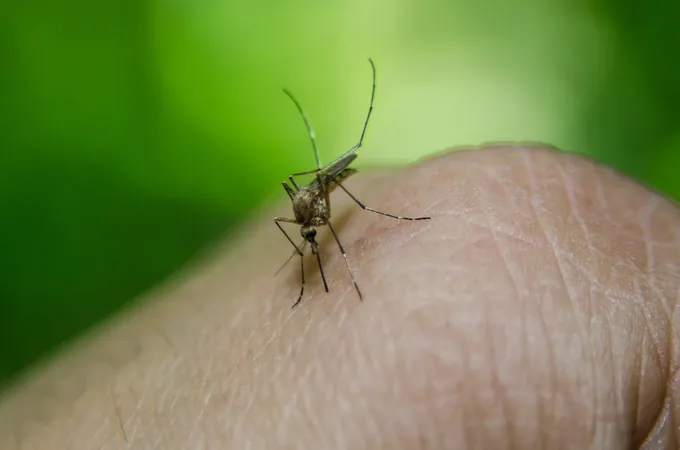
Breakthrough in Malaria Research: Promising New Vaccine Shows 89% Efficacy in Trial
2024-11-25
Author: John Tan
Introduction
In a groundbreaking clinical trial conducted by researchers at Leiden University Medical Center and Radboud University Medical Center in the Netherlands, a new malaria vaccine has demonstrated a remarkable safety and efficacy profile.
Vaccine Overview
The late-liver-stage attenuated vaccine, featuring a genetically modified variant of the parasite Plasmodium falciparum known as GA2, was tested on healthy adult volunteers, showcasing its potential to combat malaria effectively.
The Malaria Burden
Malaria remains a critical global health issue, with over 200 million cases and approximately half a million deaths each year, predominantly affecting vulnerable populations in sub-Saharan Africa, Asia, and Latin America.
This disease primarily threatens young children and pregnant women, highlighting an urgent need for effective and long-lasting vaccination solutions.
Study Details
The trial, detailed in the prestigious New England Journal of Medicine, evaluated the safety, side effects, and protective efficacy of the GA2 vaccine delivered through mosquito bites.
This innovative approach allows the parasite to develop longer within the liver, thus providing the immune system with a more extensive range of antigens to recognize and fight against malaria.
Trial Structure
In this double-blind, controlled study involving 25 participants, volunteers were divided into three groups: those immunized with GA2, those exposed to a different parasite variant known as GA1, and a control group receiving a placebo.
After three immunization sessions spread over 28 days, participants were intentionally exposed to malaria to assess their immune responses.
Results and Efficacy
Remarkably, the results revealed that eight out of nine participants (89%) in the GA2 group exhibited robust protective efficacy against malaria infection.
In contrast, only one out of eight participants in the GA1 group and none in the placebo group achieved similar protection.
These outcomes signal a significant advancement in malaria vaccination efforts, as previous vaccines have typically offered only limited short-term protection.
Immune Response Insight
The study also revealed that participants receiving the GA2 vaccine developed a higher frequency of P. falciparum-specific polyfunctional CD4+ T cells—immune cells critical for combating infections—compared to those receiving GA1.
These proinflammatory immune responses were characterized by the production of cytokines such as interferon-γ and interleukin-2, further indicating that the vaccine's success hinges on cellular immunity rather than purely antibody responses.
Future Directions
Considering the successes of the GA2 vaccine, researchers advocate for further exploration in larger populations and diverse demographics to fully understand and harness its protective capabilities against malaria.
Conclusion
As global health organizations strive to eradicate malaria, innovations like the GA2 vaccine may become essential tools in this ongoing battle.
With malaria continuing to inflict immense suffering worldwide, hope shines brightly on the horizon as clinical advancements pave the way for brighter, healthier futures in endemic regions.
Keep an eye on this space for more updates on malaria research and breakthroughs!

 Brasil (PT)
Brasil (PT)
 Canada (EN)
Canada (EN)
 Chile (ES)
Chile (ES)
 España (ES)
España (ES)
 France (FR)
France (FR)
 Hong Kong (EN)
Hong Kong (EN)
 Italia (IT)
Italia (IT)
 日本 (JA)
日本 (JA)
 Magyarország (HU)
Magyarország (HU)
 Norge (NO)
Norge (NO)
 Polska (PL)
Polska (PL)
 Schweiz (DE)
Schweiz (DE)
 Singapore (EN)
Singapore (EN)
 Sverige (SV)
Sverige (SV)
 Suomi (FI)
Suomi (FI)
 Türkiye (TR)
Türkiye (TR)